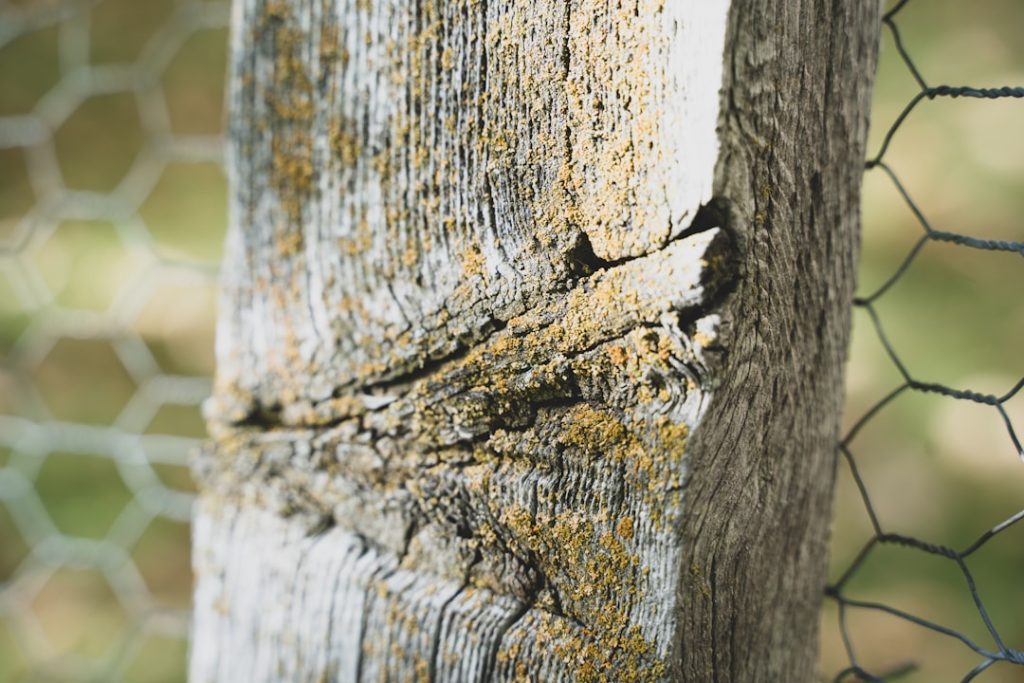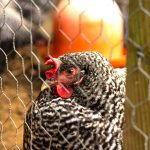Chickens are naturally curious and inquisitive animals that explore their surroundings and peck at objects of interest. As opportunistic feeders, they consume a wide variety of items they perceive as food. This behavior can pose challenges when attempting to keep chickens out of gardens, as they may view plants and vegetables as potential food sources.
Chickens are also social creatures that tend to follow the lead of dominant flock members. Consequently, if one chicken discovers access to a garden, others are likely to follow suit. Understanding these behavioral traits is essential for developing effective strategies to deter chickens from entering gardens.
Chickens are creatures of habit and often return to locations where they have previously found food or shelter. Once they have discovered access to a garden, they are likely to persist in their attempts to re-enter. This tendency necessitates the implementation of long-term solutions rather than temporary measures.
Additionally, chickens possess a strong sense of curiosity and will investigate changes or new objects in their environment. This characteristic can be leveraged when implementing deterrents, as the introduction of unfamiliar objects may help discourage chickens from entering the garden.
Table of Contents
- 1 Natural Deterrents for Chickens
- 2 Using Scents to Repel Chickens
- 3 Creating Physical Barriers
- 4 Implementing Visual Deterrents
- 5 Training Chickens to Stay Out of the Garden
- 6 Regular Maintenance and Monitoring
- 7 FAQs
- 7.1 What are some natural ways to keep chickens out of the garden without using fencing?
- 7.2 How can I train my chickens to stay out of the garden?
- 7.3 Are there any plants that can help keep chickens out of the garden?
- 7.4 What are some non-toxic deterrents that can be used to keep chickens out of the garden?
- 7.5 How can I protect specific plants from chickens without using fencing?
Key Takeaways
- Chickens are social animals and have a natural pecking order within their flock.
- Predators, such as dogs and hawks, can cause stress and fear in chickens, affecting their behavior.
- Chickens have a strong sense of smell and are sensitive to certain scents, which can be used as natural deterrents.
- Physical barriers, such as fences and netting, can effectively keep chickens out of specific areas.
- Visual deterrents, such as scarecrows and reflective objects, can help keep chickens away from gardens and other off-limits areas.
- Consistent training and reinforcement can help teach chickens to stay out of certain areas.
- Regular maintenance and monitoring of deterrents and barriers is essential to ensure their effectiveness in keeping chickens away.
Natural Deterrents for Chickens
Moving Decoys to Maintain Effectiveness
It is important to regularly move these decoys around the garden to prevent the chickens from becoming accustomed to their presence.
Using Unappealing Plants and Herbs
Another natural deterrent for chickens is the use of certain plants and herbs that chickens find unappealing. For example, planting strong-smelling herbs such as lavender, mint, or rosemary around the perimeter of the garden can help to deter chickens from entering.
Creating a Natural Barrier
Chickens have a strong sense of smell and are sensitive to certain scents, so planting these herbs can help to create a natural barrier that chickens will be reluctant to cross.
Using Scents to Repel Chickens

In addition to planting herbs with strong scents, there are other scents that can be used to repel chickens from the garden. For example, citrus peels such as lemon or orange can be scattered around the perimeter of the garden to create a barrier that chickens will be reluctant to cross. The strong citrus scent is unpleasant for chickens and can help to deter them from entering the area.
Similarly, garlic and onion peels can also be used as a natural deterrent, as chickens find these scents unappealing. Another effective scent-based deterrent for chickens is the use of vinegar. Mixing vinegar with water and spraying it around the perimeter of the garden can create a strong odor that chickens will find unpleasant.
Additionally, vinegar has the added benefit of being safe for plants and will not cause any harm to the garden. Using scents to repel chickens can be an effective and natural way to keep them out of the garden without causing any harm to the animals.
Creating Physical Barriers
One of the most straightforward ways to keep chickens out of the garden is by creating physical barriers that prevent them from accessing the area. This can be done by installing fencing around the perimeter of the garden that is tall enough to prevent chickens from flying over it. Additionally, burying the bottom of the fence underground can help to prevent chickens from digging underneath it.
It is important to ensure that the fencing is secure and does not have any gaps or openings that chickens could squeeze through. Another physical barrier that can be used to keep chickens out of the garden is the use of chicken wire or netting. This can be placed over individual plants or rows of vegetables to prevent chickens from pecking at them.
Additionally, using raised beds or containers for growing plants can help to keep them out of reach of chickens. Creating physical barriers is an effective way to prevent chickens from accessing the garden and can provide long-term protection for plants and vegetables.
Implementing Visual Deterrents
In addition to predator decoys, there are other visual deterrents that can be used to keep chickens out of the garden. One effective method is the use of reflective surfaces such as old CDs or mirrors placed around the perimeter of the garden. The sunlight reflecting off these surfaces can create a disorienting effect for chickens, making them reluctant to enter the area.
Additionally, hanging shiny objects such as aluminum foil strips or wind chimes can create movement and noise that will deter chickens from approaching. Another visual deterrent for chickens is the use of scarecrows. While traditional scarecrows may not be effective for long periods of time as chickens become accustomed to them, regularly changing their appearance or moving them around can help to maintain their effectiveness.
Additionally, using motion-activated devices such as sprinklers or noise makers can startle chickens and discourage them from entering the garden. Implementing visual deterrents can be an effective way to keep chickens out of the garden without causing any harm to the animals.
Training Chickens to Stay Out of the Garden

Providing an Alternative Environment
In addition to using deterrents, it is possible to train chickens to stay out of the garden through positive reinforcement. This can be done by providing an alternative area for chickens to forage and explore, such as a designated free-range area with access to food and water. By providing a more appealing environment for the chickens outside of the garden, they may be less inclined to try and access it.
Using Treats and Rewards
Another method for training chickens is through the use of treats and rewards. By rewarding chickens with treats when they stay out of the garden or follow commands, they can learn to associate staying out of the garden with positive experiences. This can help to reinforce good behavior and discourage them from trying to access the garden in the future.
Reinforcing Good Behavior
By consistently providing rewards and positive reinforcement, chickens can learn to stay out of the garden and develop good habits. This approach requires patience and consistency, but it can be an effective way to train chickens and protect your garden.
Regular Maintenance and Monitoring
Finally, regular maintenance and monitoring are essential for keeping chickens out of the garden in the long term. This includes regularly checking for any gaps or openings in fencing or netting that could allow chickens to access the garden. Additionally, it is important to regularly move predator decoys and visual deterrents around the garden to prevent chickens from becoming accustomed to their presence.
Monitoring chicken behavior and making adjustments as needed is also crucial for long-term success. By observing how chickens interact with deterrents and making changes based on their behavior, it is possible to create an effective strategy for keeping them out of the garden. Regular maintenance and monitoring are essential for ensuring that deterrents remain effective and that chickens are discouraged from accessing the garden over time.
In conclusion, understanding chicken behavior is crucial when it comes to finding effective deterrents for keeping them out of the garden. Natural deterrents such as predator decoys and strong-smelling herbs can be effective at deterring chickens, while physical barriers such as fencing and netting provide long-term protection for plants and vegetables. Implementing visual deterrents and training chickens through positive reinforcement can also help to keep them out of the garden.
Regular maintenance and monitoring are essential for ensuring that deterrents remain effective over time. By using a combination of these methods, it is possible to create an effective strategy for keeping chickens out of the garden while ensuring their well-being.
If you’re looking for alternative ways to keep chickens out of your garden without using fencing, you might be interested in learning about how guinea fowl can help with pest control in the garden. Check out this article on poultrywizard.com to find out more about how guinea fowl can coexist with chickens and help keep your garden free from unwanted pests.
FAQs
What are some natural ways to keep chickens out of the garden without using fencing?
Some natural ways to keep chickens out of the garden include using chicken wire or hardware cloth to create a barrier, planting prickly or thorny plants around the garden perimeter, using motion-activated sprinklers, and using natural deterrents such as citrus peels, coffee grounds, or vinegar.
How can I train my chickens to stay out of the garden?
You can train your chickens to stay out of the garden by providing them with alternative areas to forage and explore, using positive reinforcement such as treats when they stay out of the garden, and consistently redirecting them away from the garden when they approach.
Are there any plants that can help keep chickens out of the garden?
Yes, there are several plants that can help keep chickens out of the garden. Plants with prickly or thorny foliage such as roses, holly bushes, or barberry can act as a natural deterrent for chickens. Additionally, planting strong-smelling herbs such as lavender, mint, or rosemary can also help deter chickens from entering the garden.
What are some non-toxic deterrents that can be used to keep chickens out of the garden?
Non-toxic deterrents that can be used to keep chickens out of the garden include citrus peels, coffee grounds, vinegar, and cayenne pepper. These natural substances can be sprinkled around the perimeter of the garden to discourage chickens from entering.
How can I protect specific plants from chickens without using fencing?
To protect specific plants from chickens without using fencing, you can create individual barriers around the plants using chicken wire or hardware cloth. You can also use cloches or row covers to protect plants from chicken damage. Additionally, planting taller plants or using raised beds can make it more difficult for chickens to access specific plants.
Meet Walter, the feathered-friend fanatic of Florida! Nestled in the sunshine state, Walter struts through life with his feathered companions, clucking his way to happiness. With a coop that’s fancier than a five-star hotel, he’s the Don Juan of the chicken world. When he’s not teaching his hens to do the cha-cha, you’ll find him in a heated debate with his prized rooster, Sir Clucks-a-Lot. Walter’s poultry passion is no yolk; he’s the sunny-side-up guy you never knew you needed in your flock of friends!







